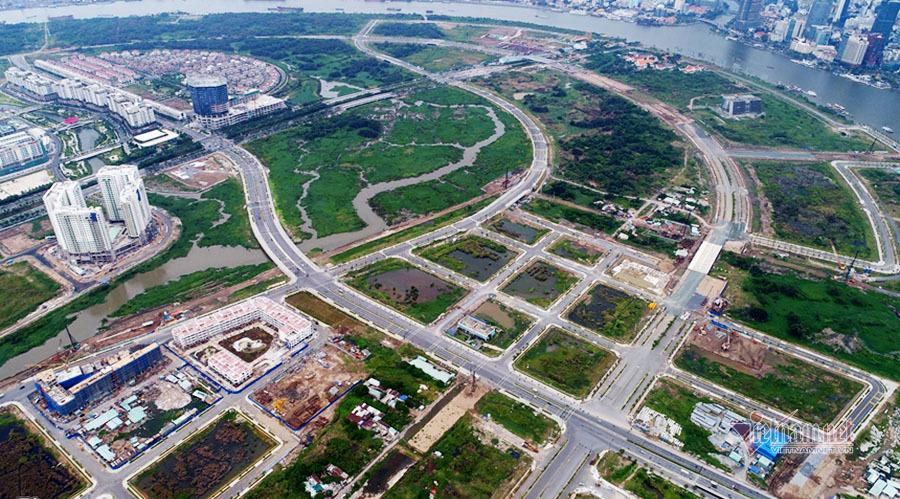
The Thu Thiem land auction took place many months ago, but it remains a hot topic of discussion. The bid prices were abnormally high, and two businesses, which were auction winners, later withdrew from the purchases and accepted to lose their deposits.
Land auctions by the State, as the representative of the people's ownership of land, distribute limited land according to a market mechanism instead of land allocation.
Pham Van Vo from the HCM City Law University said that overly high bid prices cause negative effects on the market, but this is part of the market economy which needs to be accepted.
When an enterprise bids a high price level of VND2.4 billion per square meter, this shows its expectations for the next five years, when they launch real estate products into the market, not for the current moment.
Huynh The Du from Fulbright Vietnam said there are no loopholes in the legal framework about land auctions.
“The problem is that we still don’t have adequate thinking about the market economy and we think of too many conspiracy theories about the influences that rule the land auction, and thereby, distort the story,” he said. “If we didn’t rely on the market mechanism to deal with problems, the land auction in Thu Thiem would have been deadlocked.”
Winning auctions and canceling contract later
Agreeing with the economist, Nguyen Quang Tuyen from the Hanoi Law University said there would be no problem if businesses bid at $1 trillion and then paid enough money because this is not prohibited by law. In the case of Thu Thiem land auction, concerns have been raised because enterprises bid at very high prices and then canceled the purchases.
In fact, winning auctions and canceling contracts later is a phenomenon that occurs regularly. This happens with three out of every 10 auctions in Bac Giang and Bac Ninh. The proportion is nearly the same in other localities.
According to Tuyen, there are three important components, including the rules of the game, playing field, and players.
In the case of Thu Thiem land auction, the businesses which attended the auction did not break the law. Therefore, it’s necessary to keep calm and not treat businesses as if they are like the plague.
He warned that if state management agencies tighten management too much, the investment and business environment would not be attractive.
However, some matters need to be discussed about the rules of game. The current laws which cover land auctioning include the 2013 Land Law, 2015 Civil Code, 2016 Law on Property Auction, and 2020 Investment Law.
The four laws have relations with land auctioning, but they were created by different ministries and branches.
The 2013 Land Law stipulates principles for land-use right auctioning. Meanwhile, the orders and procedures for auctioning are implemented in accordance with the 2016 Law on Property Auction. The law does not give details on the issue.
There are also problems in defining starting prices of land in accordance with the 2013 Land Law. The land price frames are set by provincial people’s committees, and under current regulations, administrative agencies are given too many rights. Provincial people’s committee both have the right to revoke land and set land prices.
The story about low land prices has its roots in the Land Law, so when amending the law, it’s necessary to pursue market rules. It’s also necessary to supplement provisions about procedures and modes of auctioning in accordance with the Law on Property Auction.
In the case of Thu Thiem land auction, the HCM City Property Auctioning Service Center confirmed that enterprises met all requirements to attend the auctions. A company like Ngoi Sao Viet (a subsidiary of Tan Hoang Minh Group) was allowed to attend the auction, but its financial capability was limited and did not satisfy the requirement that its stockholder equity should not be lower than 20 percent of total investment capital of the project.
“The appraisal of enterprises attending the auction must be implemented before the auction. Did the HCM City Property Auctioning Service Center do this?” Vo asked.
Vu Tien Loc, a National Assembly Deputy, said that the land auction in Thu Thiem did not succeed though it was organized in accordance with the laws, because two investors withdrew their purchases.
He said that the main purpose of land auctions is not collecting as much money as possible but exploiting natural resources in the most effective way for socio-economic development.
Tran Chung